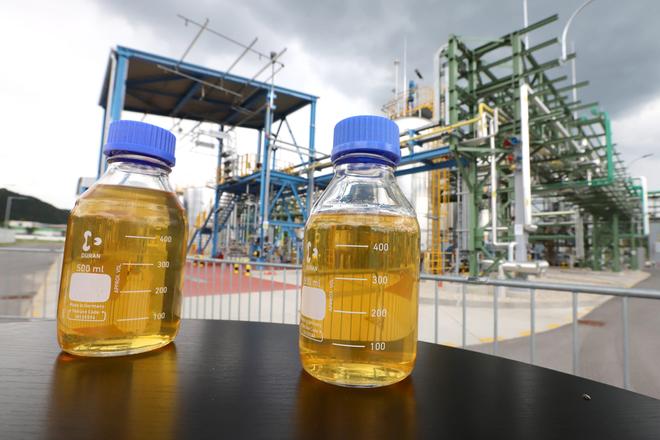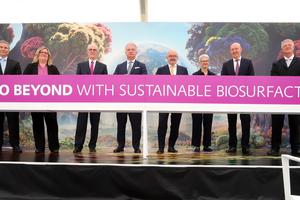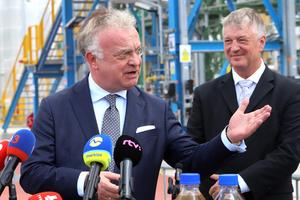Evonik, a global leader in specialty chemicals, has launched a new biosurfactant plant in Slovenská Ľupča, central Slovakia.
The factory will employ around 100 new workers. The German company employs 250 people in the town today.
Surfactants are compounds found in numerous industrial and household products, such as cleaning agents or shower gels. However, they are most often produced from petroleum products.
First in the world
The German company's facility is said to be the first in the world to make rhamnolipid biosurfactants in industrial-scale volumes. Rhamnolipids are obtained from renewable corn feedstocks using a biotechnological process. This process yields a biosurfactant that is non-toxic and biodegradable.
The firm stated in a press release that rhamnolipids are increasingly in demand due to their ability to provide a sustainable alternative to surfactants derived from fossil sources or tropical oils. The potential of these bio chemicals in personal care, cleaning, coatings and agriculture is huge, according to Evonik.
The strategic customer for the new operation will be Unilever, a global leader in the production of cleaning supplies for households and personal hygiene. Unilever is well-known in Slovakia for products such as Domestos, Cif, and Savo.
Expansion
In March of 2024, it was reported that Evonik Fermas' portfolio of products in Slovenská Ľupča would also encompass proteins for the textile and chemical industries, in addition to biotechnological products for diverse industries. These proteins were told to replace proteins from animal sources.
At the end of last year, Evonik Fermas, Evonik's daughter company, initiated the production of new types of amino acids for the chemical and pharmaceutical industry, the Index magazine wrote.
The Evonik corporation operates in more than 100 nations worldwide and achieved sales of €15.3 billion and an operating profit of €1.66 billion in 2023.
In 1993, the chemical concern arrived in Slovenská Ľupča to start making amino acids for livestock feed. Denník N writes that it was the biggest foreign investment in the country at that time. The German firm Degussa and the Slovak firm Biotika owned Evonik Fermas. Six years later, Evonik assumed over the firm.


 Evonik plant in Slovenská Ľupča, central Slovakia. (source: TASR - Ján Krošlák)
Evonik plant in Slovenská Ľupča, central Slovakia. (source: TASR - Ján Krošlák)


